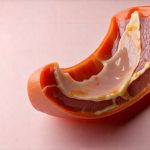The sensation of a lump in the throat – often described as feeling like something is stuck, or a tightness – is surprisingly common. Many people experience it intermittently without significant concern, attributing it to stress or simply noticing normal throat sensations more acutely. However, when this sensation persists, becomes bothersome, or is accompanied by other symptoms, it understandably raises questions and anxieties. One frequent question arises: could gastroesophageal reflux disease (GERD), commonly known as acid reflux, be the culprit behind this unsettling feeling? The relationship between reflux and a lump in the throat isn’t always straightforward, and understanding the nuances involved is key to identifying the cause and finding appropriate solutions. It’s important to note that while reflux can contribute to these sensations, it isn’t always the reason and other causes must be considered.
This sensation, medically termed globus sensation (even when not related to reflux), is often described as a feeling of fullness or tightness in the throat – without any actual obstruction. It’s crucial to distinguish this from a genuine lump or mass that requires medical investigation. The perception can be quite strong and distressing for individuals experiencing it, leading to worry about serious underlying conditions. Reflux can play a role because stomach acid irritating the esophagus and even reaching the back of the throat can cause inflammation and changes in sensation, potentially triggering or exacerbating this globus sensation. Understanding how reflux interacts with the throat’s sensory nerves is vital for comprehending the connection. If emotional stress is a factor, it may exacerbate symptoms.
The Link Between Reflux and Globus Sensation
Reflux occurs when stomach acid flows back up into the esophagus. This happens because the lower esophageal sphincter (LES), a muscular valve at the bottom of the esophagus, doesn’t close properly, allowing acidic contents to rise. While heartburn is the most well-known symptom of reflux, it can manifest in many different ways – and sometimes without typical heartburn symptoms altogether. This is known as “silent reflux” or laryngopharyngeal reflux (LPR). In LPR, the acid reaches higher up into the esophagus and even into the throat, leading to irritation and inflammation that can contribute to a lump sensation. – The acidic environment can directly irritate the sensitive tissues in the throat. – Inflammation can alter how nerve endings perceive sensations, causing dysphagia (difficulty swallowing) or globus sensation. – Chronic exposure to acid can lead to changes in the esophageal lining, further contributing to discomfort and altered perception.
The connection isn’t always a simple cause-and-effect relationship. Sometimes, reflux doesn’t directly cause the lump sensation, but it can exacerbate an existing one. For instance, if someone already experiences anxiety or stress – both of which are known to contribute to globus sensation – reflux might amplify their awareness of throat sensations, making the feeling more pronounced and distressing. It’s also possible for a person to have reflux without experiencing any lump sensation at all, highlighting the individual nature of these conditions. The vagus nerve, responsible for many functions including swallowing and gut motility, is often implicated in both reflux and globus sensation, creating complex interactions that can be difficult to untangle. When considering the impact on your health, it’s important to think about the role of stress in contributing factors.
Moreover, the way we perceive sensations in the throat is remarkably subjective. A normal physiological process, like swallowing, can sometimes be misinterpreted as something abnormal if someone is particularly attuned to their body or experiencing heightened anxiety. This explains why many people with globus sensation report feeling a lump even when there’s no physical obstruction present. Therefore, identifying whether reflux is playing a role requires careful evaluation and often involves ruling out other potential causes.
Identifying Potential Underlying Causes
Beyond reflux, several other factors can cause a lump sensation in the throat: – Muscle tension: Stress and anxiety frequently lead to tightening of muscles in the neck and throat, creating a feeling of constriction. – Thyroid issues: An enlarged thyroid or thyroid nodules can physically create a lump-like sensation. – Esophageal disorders: Conditions like esophageal strictures or achalasia (difficulty swallowing) can cause physical obstructions. – Neurological conditions: Rarely, neurological problems affecting the nerves controlling the throat muscles can contribute to this feeling. – Psychological factors: Anxiety and depression are strongly linked to globus sensation, often amplifying the perception of discomfort.
A thorough medical evaluation is essential to determine the underlying cause. This usually begins with a detailed history and physical examination by a doctor. If reflux is suspected, diagnostic tests may include: 1. Endoscopy: A procedure where a thin, flexible tube with a camera is inserted into the esophagus to visualize any inflammation or damage. 2. pH monitoring: Measures the amount of acid in the esophagus over a period (usually 24 hours) to determine if reflux is occurring. 3. Impedance testing: Similar to pH monitoring but also measures non-acidic reflux, which can sometimes cause symptoms. Consider whether acid reflux may be causing ear pain or pressure alongside these sensations.
It’s crucial not to self-diagnose or rely solely on online information. A healthcare professional can accurately assess your situation and recommend the most appropriate course of action. Ignoring a persistent lump sensation could delay diagnosis and treatment of more serious underlying conditions.
Managing Reflux & Alleviating Symptoms
If reflux is identified as a contributing factor, several strategies can help manage it and potentially reduce the lump sensation: – Lifestyle modifications: These include elevating the head of your bed, avoiding trigger foods (like spicy or fatty foods, caffeine, alcohol), eating smaller meals, and not lying down immediately after eating. – Dietary changes: Reducing consumption of acidic foods and beverages may lessen irritation. – Over-the-counter medications: Antacids can provide temporary relief from heartburn, while H2 blockers and proton pump inhibitors (PPIs) reduce acid production. However, long-term use of PPIs should be discussed with a doctor due to potential side effects. – Prescription medications: In more severe cases, a doctor may prescribe stronger medications to control reflux. The role of fiber in managing these conditions can also contribute to relief.
It’s important to remember that managing reflux is often an ongoing process. It requires consistent adherence to lifestyle modifications and medication regimens (if prescribed). Even with successful reflux management, the lump sensation might not disappear immediately, as it can take time for the throat tissues to heal and nerve perception to normalize. Additionally, addressing any underlying anxiety or stress contributing to the sensation is crucial for long-term relief. You could also explore aloe vera options for soothing acid reflux symptoms.
When To Seek Medical Attention
While many cases of globus sensation are benign and resolve on their own, certain symptoms warrant prompt medical attention: – Difficulty swallowing (dysphagia) that interferes with eating or drinking. – Pain in the chest or throat. – Unintentional weight loss. – Persistent hoarseness. – Feeling like food is getting stuck in your throat. – Blood in your saliva or stool.
These symptoms could indicate a more serious underlying condition, such as esophageal cancer or another gastrointestinal disorder. Don’t hesitate to consult a doctor if you experience any of these warning signs. Early diagnosis and treatment are essential for optimal outcomes. The sensation of a lump in the throat can be incredibly distressing, but understanding the potential causes – including the role of reflux – empowers you to take proactive steps towards relief. Remember that seeking professional medical advice is always the best course of action when dealing with persistent or concerning symptoms. If reactions occur after changing your diet, it may indicate underlying issues.


















